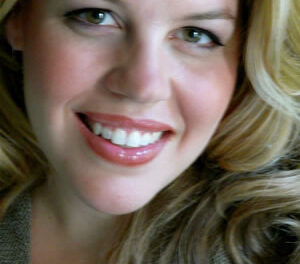The Brevard Music Center Orchestra’s new Principal Conductor, Keith Lockhart, presented a Sunday afternoon program called “Wiener Küche” (“Viennese Cuisine”). The bookends were orchestral works by Wolfgang Amadeus Mozart and Richard Strauss, two great composers with strong ties to Vienna. The central part of the program was lighter fare cooked up by Johann Strauss II, Franz Lehár, and Fritz Kreisler, and performed by the orchestra in conjunction with violinist Robert McDuffie.
Communication — that is what symphony orchestras are all about. In the score and parts, the composer has attempted to communicate to the orchestra from a distance in space and time. The conductor communicates his version of the work to the players during rehearsal and then reinforces that message through his on-stage conducting. The concertmaster and section leaders, especially in the string sections, communicate interpretative details that are specific to the instrument. If all these internal communications are successful, the result is a communication to the audience of the composer’s intent, the conductor’s vision, and the orchestra’s fulfillment of those musical ideas and feelings.
Each year, I marvel at how the Brevard Music Center Orchestra can spring into being so rapidly at the start of each summer’s Brevard Music Festival. This is an ensemble whose personnel is perhaps 50% new due to student and faculty turnover year to year, an ensemble in which few of the returning faculty have played with each other during the past ten months. This year, the orchestra faced the additional challenge of working with a new conductor. Sunday showed a complete early success.
Lockhart is best known for his work with the Boston Pops, and so it was not surprising that the “Sachertorte mit Schlag” in the center of the program was exemplary in its presentation. Both McDuffie and Lockhart treated this musical literature with the respect it deserves, not trivializing it due to the fact that it happens to have broad popular appeal as well as being finely crafted. Franz Lehár’s “Magyar ábránd” (“Hungarian Dream”) included some of the fastest violin playing that most of the audience had ever heard; they insisted on an encore, which was “Wien, du Stadt meiner Traüme” (“Vienna, City of My Dreams”), by little-known Viennese composer Rudolf Sieczynski. If the piece sounded familiar, it was probably because it has been used in several movies.
But allow me to return to the subject of communication, using Mozart’s Overture to The Abduction from the Seraglio as my example. Recently, Lockhart has been conducting without a baton. As with the late Dimitri Mitropoulos and almost all choral conductors, he makes the absence of a stick seem natural because of the presence of so many other communicative gestures. Lockhart has arms and hands that seem large by comparison with his short trunk. The hands move from the wrist fluidly, like flippers. The fingers are alternately spread or held together. Individual fingers are pointed or curled. Even elbows give signals. During the Mozart, the left hand appeared under the right arm to give a “come hither” gesture to the celli. He made eye contact with players, beginning before the first notes from the violins. Throughout the program, Lockhart received help from concertmaster William Preucil, whose head, shoulders and bow arm gave unmistakable signals to the first violin section and the other strings.
Following intermission came Richard Strauss’ sinuous and sexy “Dance of the Seven Veils” from the opera Salome. The interplay of innocence from the flute and decadence from the oboe colored this piece, lushly orchestrated by the post-Wagnerian master composer.
The final work was Strauss’ Suite from Der Rosenkavalier, the opera that is probably his finest composition. The musical motifs that interplay here include a gorgeous theme depicting the Marschallin’s wistfulness and a sequence of falling chords that provide a waterfall of laughter depicting the irreverence of her youthful lover. To my mind, there is an underlying metaphor. The Marschallin helps the young man move on in his life, knowing that a delightful phase of her life is over. Strauss helps the world move on, knowing that the glory of the Hapsburg Empire was over in the year 1911 when he wrote the opera. To hear this performance from Lockhart and the BMC Orchestra was to experience the bittersweet personal history of a sophisticated lady and to feel under the surface the equally bittersweet social history of a highly civilized nation, all in a single piece of music. Well done.
Note: The Brevard Music Festival continues through August 10. For details, click here.











